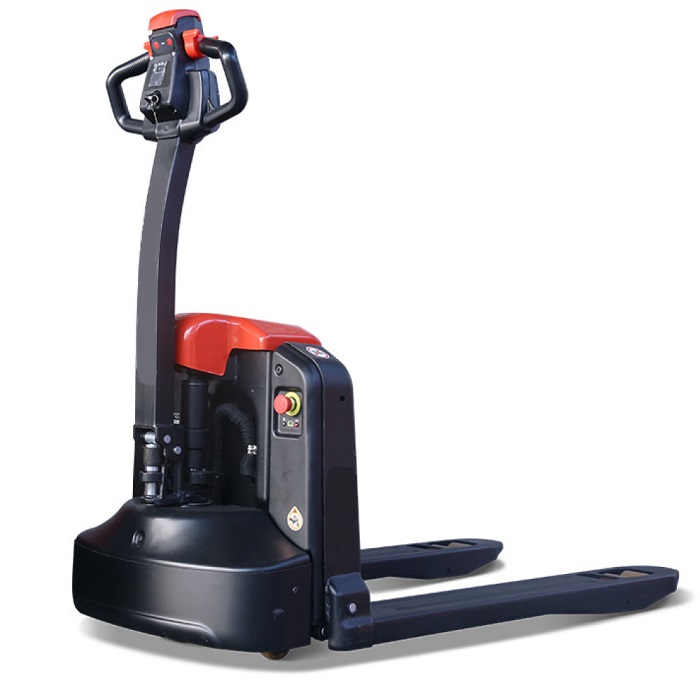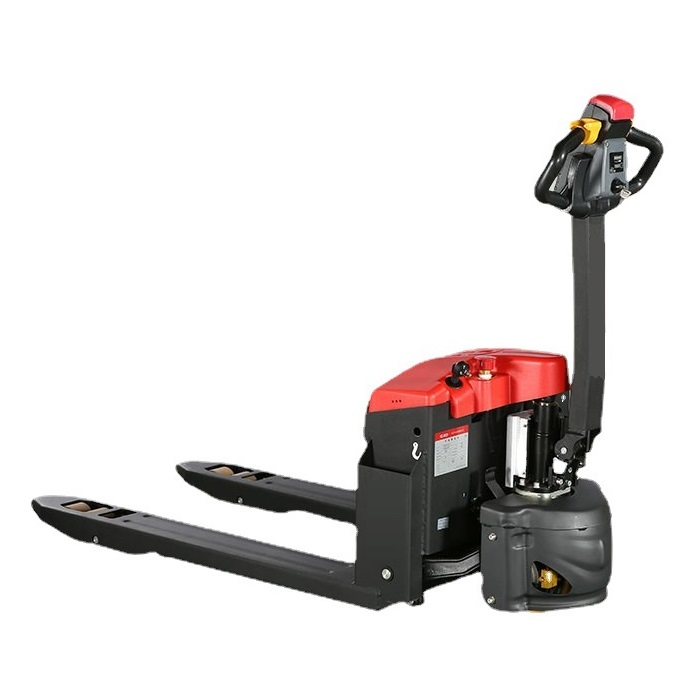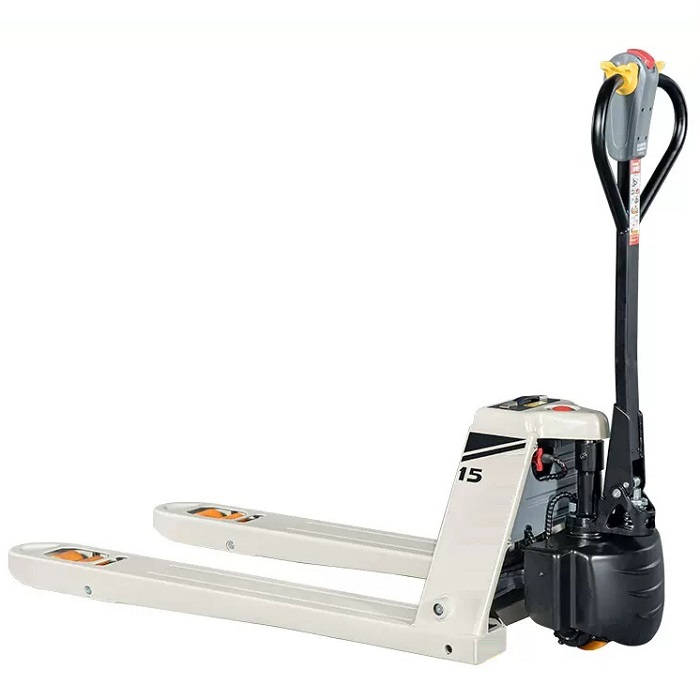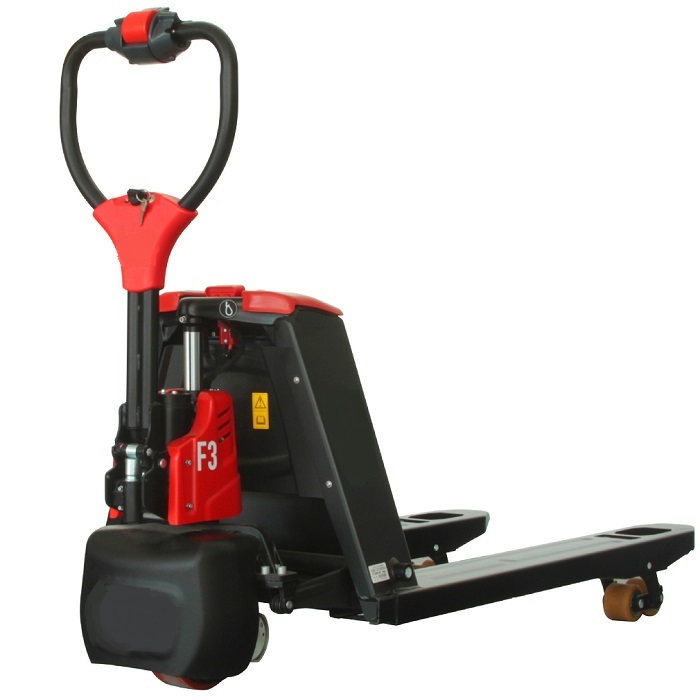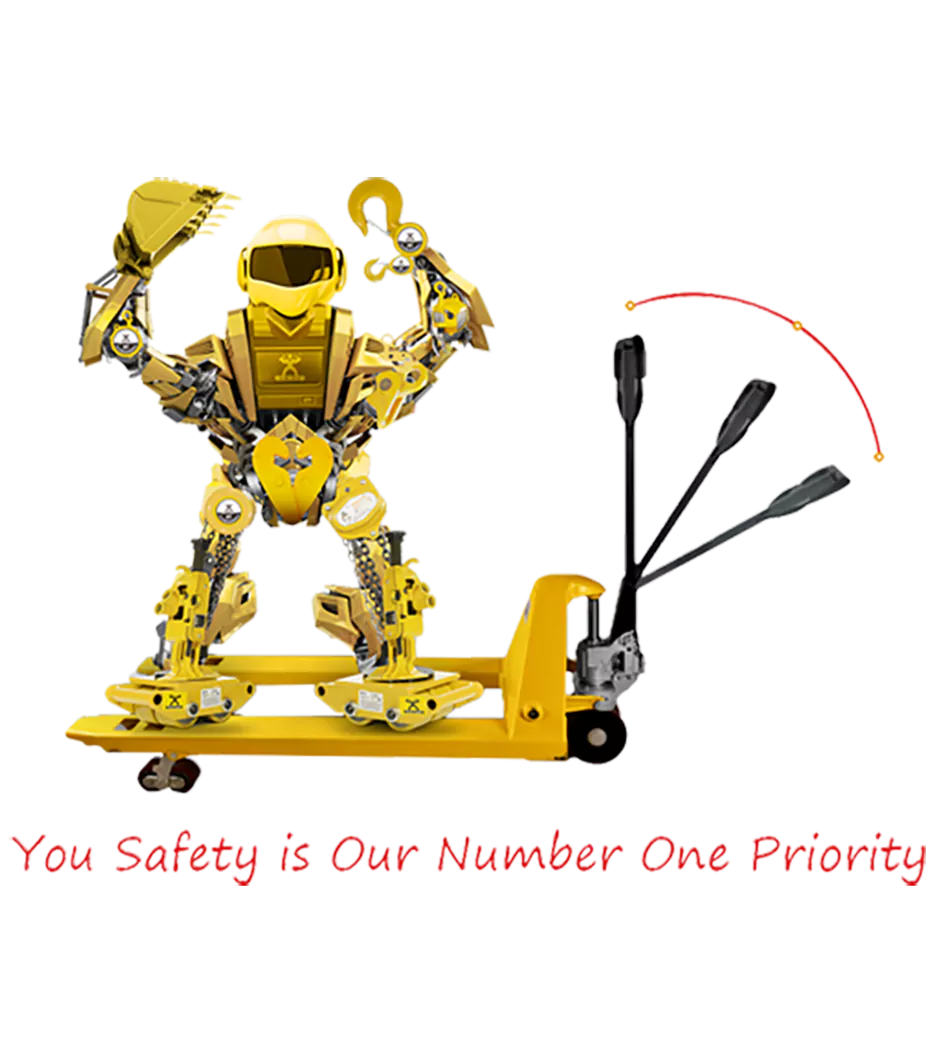In the fast-paced world of warehousing and logistics, efficiency is key to maintaining a competitive edge. One of the most indispensable tools in achieving this efficiency is the pallet truck. Known for their versatility and ease of use, pallet trucks have become a staple in material handling across various industries.
This essential guide delves into the world of pallet trucks, exploring their types, features, benefits, and the critical role they play in streamlining operations. Whether you are a warehouse manager looking to optimize your workflow or a business owner seeking to enhance your logistics capabilities, understanding pallet trucks is fundamental to improving your overall efficiency and productivity.
Introduction to Pallet Trucks
Brief History and Evolution:
Pallet trucks, also known as pallet jacks, have a rich history that dates back to the early 20th century. The invention of the pallet truck revolutionized material handling by providing a simple yet effective means of moving heavy loads with minimal effort. Initially, these devices were entirely manual, requiring physical force to lift and move pallets.
Over time, technological advancements led to the development of hydraulic systems, making manual pallet trucks more efficient and easier to operate.
The mid-20th century saw the introduction of electric pallet trucks, which further enhanced the capabilities of these indispensable tools. Electric models offered greater lifting power and reduced the physical strain on workers, leading to widespread adoption in various industries. Today, pallet trucks come in a wide range of designs and configurations, including high-lift, low-profile, and specialized versions tailored for specific applications.
Their evolution reflects the ongoing quest for improved efficiency and safety in material handling.
Importance in Modern Warehousing and Logistics:
In the contemporary landscape of warehousing and logistics, pallet trucks play a crucial role in streamlining operations and boosting productivity. They are essential for the efficient movement of goods within warehouses, distribution centers, and manufacturing facilities. By enabling quick and easy transportation of palletized loads, these trucks help reduce handling time, minimize the risk of product damage, and enhance overall workflow efficiency.
The versatility of pallet trucks allows them to be used in various settings, from small retail store rooms to large industrial complexes. They are particularly valuable in tight spaces where larger equipment, such as forklifts, may not be practical. Additionally, the use of pallet trucks contributes to safer working conditions by reducing the need for manual lifting and lowering the likelihood of workplace injuries.
As the demand for faster and more efficient logistics continues to grow, the importance of pallet trucks in modern warehousing cannot be overstated. They are an integral part of the supply chain, ensuring that goods are moved swiftly and safely from one point to another, ultimately contributing to the smooth operation of businesses and the satisfaction of their customers.
Types of Pallet Trucks
1. Manual Pallet Trucks:
Manual pallet trucks, often the most basic and widely used type, operate through a simple mechanism where the user pumps a handle to lift and move the load. They are typically made of durable steel and equipped with polyurethane or nylon wheels for smooth movement. Manual pallet trucks are ideal for small to medium-sized operations where the handling requirements are not excessively heavy or frequent.
They offer a cost-effective solution for moving pallets over short distances, making them a staple in retail environments, small warehouses, and other settings where budgets and space are limited.
2. Electric Pallet Trucks:
Electric pallet trucks, also known as powered pallet jacks, are designed to handle heavier loads and longer distances with ease. These trucks are equipped with electric motors that assist in both lifting and moving the pallets, significantly reducing the physical effort required from the operator. They are ideal for larger warehouses and distribution centers where efficiency and speed are critical.
Electric pallet trucks come with rechargeable batteries, and advanced models may feature ergonomic controls, enhanced safety features, and sophisticated tracking systems. Their ability to handle intense workloads makes them a vital asset in high-volume material handling operations.
3. High-Lift Pallet Trucks:
High-lift pallet trucks, sometimes referred to as scissor lift pallet jacks, combine the functionality of a pallet truck with the lifting capability of a small lift table. These trucks can elevate pallets to a greater height, making them useful for tasks that involve stacking, loading, or working at an ergonomic height to reduce bending and lifting.
They are commonly used in manufacturing environments, assembly lines, and areas where goods need to be raised to a comfortable working height. High-lift pallet trucks enhance productivity by facilitating easier access to goods and reducing the risk of injury from repetitive bending and lifting.
4. Specialized Pallet Trucks:
Specialized pallet trucks for sale are designed to meet specific operational requirements that standard models cannot fulfill. Examples include:
- Rough Terrain Pallet Trucks: Built with larger, more robust wheels and a sturdy frame, these trucks are ideal for outdoor use and uneven surfaces, such as construction sites or agricultural settings.
- Low-Profile Pallet Trucks: Designed for handling low-clearance pallets and skids, these trucks have a lower fork height compared to standard models. They are particularly useful in industries where space is at a premium or when dealing with specialized pallets that sit closer to the ground.
- Stainless Steel Pallet Trucks: Made from corrosion-resistant materials, these trucks are perfect for use in environments where hygiene is paramount, such as food processing, pharmaceuticals, and chemical industries.
Each type of specialized pallet truck is engineered to address unique challenges, enhancing efficiency and safety in specific applications. By selecting the appropriate type of pallet truck, businesses can optimize their material handling processes to suit their operational needs.
Key Features and Specifications
Load Capacity
Load capacity is a critical feature of pallet trucks, indicating the maximum weight they can safely handle. Manual pallet trucks typically support between 5,000 to 7,000 pounds, while electric models can handle even heavier loads, sometimes exceeding 10,000 pounds.
Selecting a pallet truck with an appropriate load capacity is essential to ensure safe and efficient operations, preventing overloading that could damage the truck or cause accidents.
Fork Length and Width
The dimensions of the forks are vital for compatibility with various pallet sizes. Standard fork lengths range from 36 to 48 inches, while widths usually span 20 to 27 inches. These dimensions determine the truck’s ability to handle different types of pallets, including Euro pallets and standard North American pallets.
Choosing the correct fork length and width ensures the pallet truck can accommodate the specific pallets used in your operations, enhancing versatility and productivity.
Maneuverability and Turning Radius
Maneuverability and turning radius are crucial for operating in confined spaces. A smaller turning radius allows for better navigation in tight aisles and crowded warehouses. Manual pallet trucks are generally more maneuverable due to their lightweight design, while electric models may offer power steering or advanced control systems to enhance maneuverability.
Evaluating the truck’s turning radius and maneuverability helps ensure it can efficiently operate in your workspace without causing disruptions or delays.
Battery Life (for Electric Models)
For electric pallet trucks, battery life is a key specification that impacts operational efficiency. A long-lasting battery reduces downtime and the need for frequent recharging, which is crucial for high-volume operations. Modern electric pallet trucks often come with lithium-ion batteries, offering quicker charging times and longer life cycles compared to traditional lead-acid batteries.
It’s important to consider the battery life, charging time, and availability of replacement batteries to ensure continuous operation and minimal interruptions.
Durability and Material Construction
The durability and material construction of a pallet truck determine its longevity and ability to withstand harsh working conditions. High-quality steel construction is common for both manual and electric models, providing strength and resistance to wear and tear. Some pallet trucks feature galvanized or stainless steel components, which offer additional protection against corrosion, making them suitable for environments with high humidity or exposure to chemicals.
Assessing the build quality and material composition of a pallet truck ensures it can endure the demands of your specific application, providing reliable performance over time.
By understanding and evaluating these key features and specifications, you can choose a pallet truck that best fits your operational needs, ensuring enhanced efficiency, safety, and longevity in your material handling processes.
Conclusion:
Pallet trucks are essential tools in modern warehousing and logistics, significantly enhancing efficiency and safety in material handling operations. From understanding the types and key features to assessing the specific needs of your business, making an informed choice can lead to substantial improvements in workflow and productivity
Whether you need a manual pallet truck for smaller operations, an electric model for heavy-duty tasks, or a specialized truck for unique requirements, selecting the right pallet truck is crucial
If you are looking to invest in high-quality, efficient pallet trucks from a trusted and professional company, don’t hesitate to contact Gongyougroup. With a commitment to excellence and a wide range of pallet trucks tailored to meet diverse industrial needs, Gongyougroup is your reliable partner in optimizing your material handling processes.

